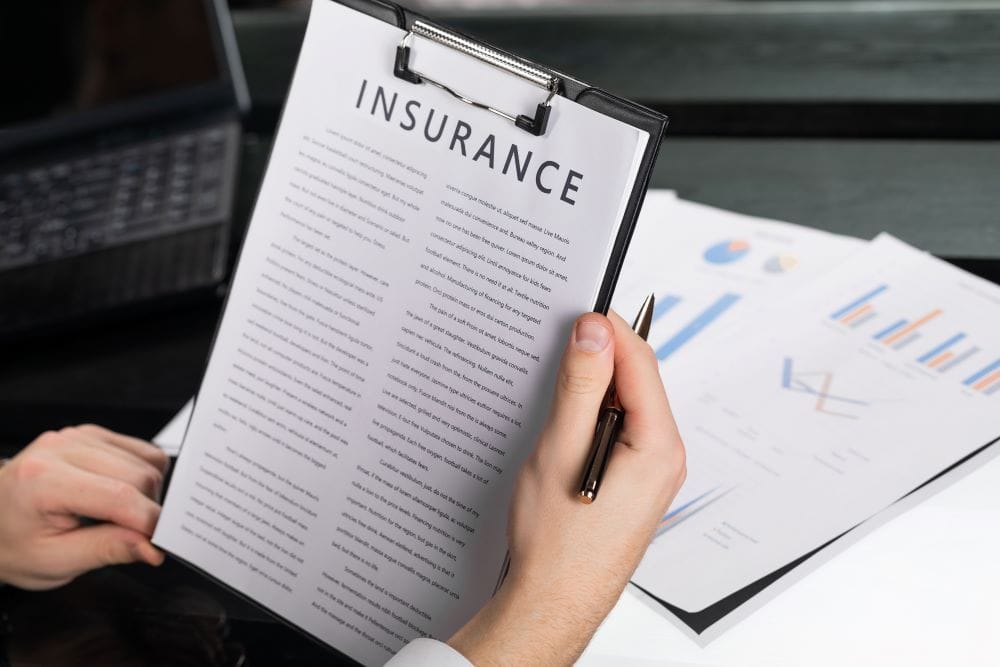
Getting into a car accident is a situation most of us hope to avoid, but unfortunately, it can happen to anyone. When you’re the victim of a collision, it’s natural to worry about the aftermath, including the impact on your car insurance rates. Will your insurance premiums go up if someone hits you? What factors influence how much they might increase? How can you navigate the complexities of insurance to minimize the financial burden on you? Let’s delve into these questions and more to provide clarity and guidance for those facing this concern.
Understanding Car Insurance Premiums:
Before diving into the specifics of how an accident might affect your insurance rates, it’s essential to understand how car insurance premiums are calculated. Insurance companies consider various factors when determining the cost of coverage for an individual. These factors typically include:
Driving Record: Your history as a driver, including any accidents or traffic violations, plays a significant role in determining your insurance premiums. A clean driving record often results in lower rates, while accidents or tickets can lead to increases.
Age and Gender: Younger, less experienced drivers and male drivers statistically have higher accident rates, which can result in higher insurance premiums.
Vehicle Type: The make and model of your vehicle, as well as its age and safety features, can impact your insurance rates. Sports cars and luxury vehicles tend to have higher premiums due to their increased risk of theft or accidents.
Location: Where you live can also affect your insurance rates. Urban areas with higher rates of accidents or vehicle theft may result in higher premiums compared to rural areas.
Coverage Level: The amount of coverage you choose, including liability limits, comprehensive, and collision coverage, will influence your insurance premiums.
Will My Insurance Go Up If Someone Hits Me?
If someone else is at fault for the accident, you might expect that your insurance rates won’t increase since you weren’t responsible. However, it’s not always that straightforward. While you’re not directly responsible for the accident, filing a claim with your insurance company could still lead to an increase in premiums.
When you file a claim, even if you’re not at fault, your insurance company may view you as a higher risk, especially if the accident resulted in significant damages or injuries. This increased risk could lead to a higher premium at your next renewal period.
How Much Will My Car Insurance Rates Go Up After a Crash?
The extent to which your car insurance rates increase after an accident can vary depending on several factors. These may include:
Severity of the Accident: Insurance companies assess the severity of the accident, including the extent of property damage and any injuries sustained. More severe accidents may result in larger rate increases.
Your Driving History: If you have a history of accidents or traffic violations, your rates may increase more significantly compared to someone with a clean driving record.
Insurance Provider: Different insurance companies have varying policies regarding rate increases after accidents. Some may be more forgiving than others, so it’s essential to understand your insurer’s policies.
State Regulations: Insurance regulations and laws vary by state, which can impact how much your rates increase after an accident.
At-Fault vs. No-Fault Accidents:
In some states, insurance follows a no-fault system, meaning each party’s insurance covers their expenses regardless of who was at fault. In these states, your rates might not increase if someone else hits you since your insurance company will handle your claim without considering fault.
However, in at-fault states, where the responsible party’s insurance typically covers damages, your rates could increase if you file a claim with your insurance company, even if you weren’t at fault. This is because your insurer still views you as a higher risk due to your involvement in an accident.
How Long Does an Accident Stay on Your Insurance?
Accidents typically stay on your insurance record for several years, typically three to five years, depending on your auto insurance provider and state regulations. During this time, the accident may continue to impact your insurance rates, even after repairs are completed and claims are settled.
When Might an Accident Not Increase Car Insurance Rates?
While it’s common for insurance rates to go up after an accident, there are situations where this may not occur. Some scenarios where your rates might remain unchanged or even decrease include:
First Accident Forgiveness: Some insurance companies offer first accident forgiveness programs, which allow policyholders to avoid rate increases after their first at-fault accident.
Minor Accidents: If the accident was minor and resulted in minimal damage, your insurance company may not raise your rates significantly, especially if you have a history of safe driving.
Not-at-Fault Accidents: In no-fault states or if you can prove that you were not at fault for the accident, your car insurance company may be less likely to raise your rates.
Can I Prevent My Insurance Rates from Going Up After an Accident?
While you can’t control whether your auto insurance rates will increase after an accident, there are steps you can take to minimize the impact:
Consider Your Deductible: If the cost of repairs is close to or less than your deductible, you may choose not to file a claim with your own insurance company to avoid potential rate increases.
Shop Around: If you’re unhappy with the rate increase from your current insurer, consider shopping around for quotes from other car insurance companies. You may find a better rate elsewhere.
Defensive Driving Courses: Some insurance companies offer discounts for completing defensive driving courses. Taking one of these courses could help offset potential rate increases.
Bundle Policies: Bundling your auto insurance with other types of insurance, such as homeowners or renters insurance, may qualify you for discounts with some insurers.
How to Save on Car Insurance After an Accident?
Even if your rates increase after an accident, there are still ways to save on your car insurance:
Maintain a Clean Driving Record: Avoiding accidents and traffic violations in the future can help lower your insurance premiums over time.
Review Coverage Limits: Periodically review your coverage limits to ensure they meet your needs without overpaying for unnecessary coverage.
Increase Deductibles: Opting for a higher deductible can lower your monthly premiums, although it means you’ll pay more out of pocket in the event of an accident.
Take Advantage of Discounts: Many insurance companies offer discounts for factors such as safe driving habits, low mileage, or installing safety features in your vehicle.
How an Attorney Can Help You:
Dealing with the aftermath of a car accident, including concerns about insurance rate increases, can be overwhelming. In such situations, seeking the guidance of an experienced attorney can be invaluable. Here’s how an attorney can assist you:
Understanding Your Rights: Attorneys can explain your legal rights under state laws and insurance policies related to car accidents, helping you understand whether you have grounds to file a claim.
Assessing Insurance Coverage: Lawyers can review your car insurance policy to determine the extent of coverage available to you and advise you on the best course of action.
Negotiating with Insurance Companies: Attorneys can handle communications with insurance adjusters on your behalf, advocating for fair compensation for your damages, including potential increases in insurance rates.
Gathering Evidence: Lawyers can collect and organize evidence such as a police report, witness statements, and medical records to support your claim.
Establishing Liability: Attorneys can investigate the accident, gather evidence, and work with experts to establish liability and support your claim.
Exploring Legal Options: Lawyers can assess your situation and advise you on legal options beyond filing an insurance claim, such as pursuing legal action against the responsible party.
Representing You in Legal Proceedings: Attorneys can represent you in legal proceedings such as arbitration, mediation, or litigation if negotiations with auto insurance companies fail.

Discover Your Path to Financial Recovery with BLG
Being involved in a car accident can be a stressful experience, and the potential impact on your insurance rates only adds to the concern. While it’s true that your rates may increase after a hit and run accident, especially if you file a claim with your insurance company, there are steps you can take to mitigate the financial impact. Understanding how insurance premiums are calculated, knowing your rights in at-fault vs. no-fault states, and exploring strategies to save on car insurance can all help you navigate this challenging situation with confidence. By staying informed and proactive, you can protect yourself and your finances after an accident.
Embarking on a journey towards financial recovery after a car accident can be daunting, but you don’t have to navigate it alone. At BLG, our dedicated team is here to offer you personalized guidance and support every step of the way. Let us help you understand your rights, negotiate with insurance companies, and secure the compensation you deserve.
Contact us today for a free consultation.




